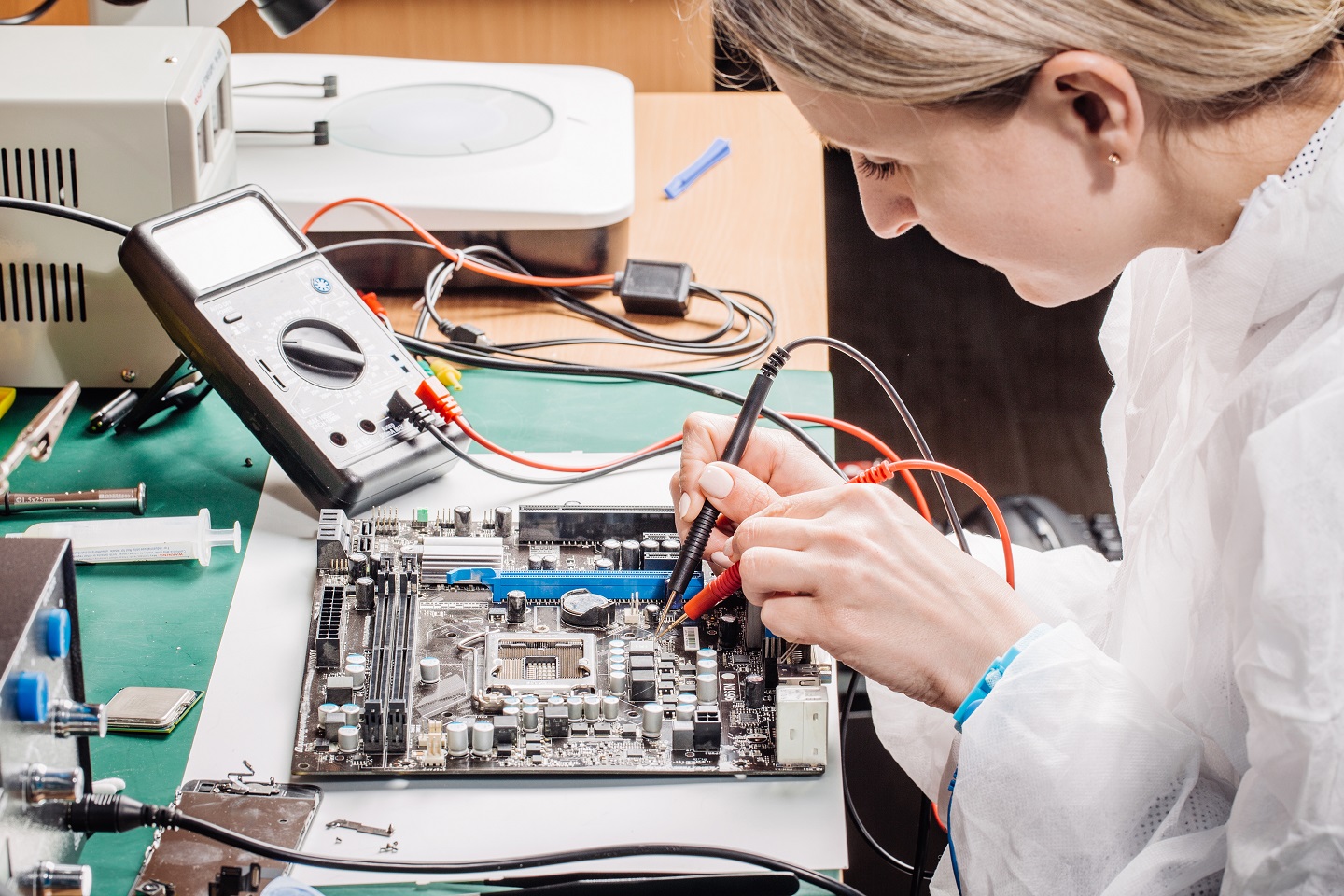Faculty of Electronics, Photonics and Microsystems
Field of study: Electronics
Language of study: Polish
Level of education: first-cycle studies
Form of studies: full-time
Number of semesters: 7
Professional title awarded after graduation: engineer
Description of the field of study:
Studies in the field of Electronics provide students with knowledge and competences in the area of modern electronic systems present in practically every area of human life. The universality of this type of circuits requires a creative approach to problem solving and the self-development in the area of both hardware (design and practical implementation of electronic circuits) and software skills. Candidates deciding to study in this field also have the opportunity to acquire soft skills needed to effectively work in a project group or to run their own businesses. Students can choose from three specializations.
Specialisations:
Students have the opportunity to specialize in the following three areas:
Acoustic Engineering – the education covers the field of electroacoustics, ultrasonic techniques, digital processing of acoustic signals, protection against noise and vibrations, communication using speech signals (human-human or human-computer), basics of sound engineering, designing devices, electroacoustic systems and room acoustics, performing measurements, analysing and processing acoustic signals, handling ultrasound equipment used in industry and medicine. As part of the specialization, students have the opportunity to expand their knowledge by participating in classes organized by the student section of the Audio Engineering Society, Luz Radio and Styk Television.
Electronic Instrumentation – the comprehensive nature of education within this specialization covers the following issues: the physical basis of sensors, signal conditioning and processing, optoelectronics, design and programming of microprocessor systems, image processing and practical applications of electronics in science, industry and medicine; it prepares students to use techniques and tools required in the design, construction, programming, operation and maintenance of electronic and photonic systems. Students will learn the techniques of virtual and rapid prototyping, designing and implementing of embedded systems as well as data acquisition and processing systems with the use of physical quantity measurement transducers (e.g. optoelectronic, biomedical, MEMS, etc.), microcontrollers, signal processors (DSP) and specialist electronic systems (such as CPLD or FPGA). Practical skills acquired during laboratory and project classes, including team work, allow students to creatively employ the acquired knowledge in the design and implementation of electronic solutions in electronic industrial and medical equipment systems.
Signal Processing Systems – the education covers general knowledge in the area of digital image processing and recognition, the principles of machine learning and the acquisition and processing of biometric data. Students learn about basic data structures and the principles of creating and operating neural networks. Graduates of this specialization can: use real-time operating systems, use tools for the implementation of logical structures based on VHDL and Verilog languages, launch DSP systems on a specialist signal processor, develop both advanced applications operating on the Android system and distributed software, and also use neural networks to solve assigned tasks.
Study program:
The current version of the study program is available by clicking the link: plans and study programs.
Employment perspectives:
Operator and sound engineer in radio, television, cinematography, phonography and entertainment industry, in drama and opera theatres, and in recording studios.
Designer of sound systems in specialist companies, designer of acoustically adapted rooms, engineer in companies dealing with noise reduction, as well as the production of ultrasonic sensors and devices.
Developer and tester of common analogue and microprocessor electronic devices, intelligent systems, renewable energy systems, medical and industrial devices, including those based on signal microprocessors (DSP) and programmable circuits (CPL D, FPGA) and cooperating with computer systems.
Developer of embedded systems, systems integrator.
Programmer of microprocessor control systems.
Programmer of network applications and ML/AI vision and machine learning systems.
Designer of artificial intelligence systems based on neural networks.
Designer and programmer of mobile applications.
Designer and developer of distributed systems and autonomous vehicles (e.g. drones).
Programmer of specialist signal processors and FPGA circuits
Developer of real-time systems.



